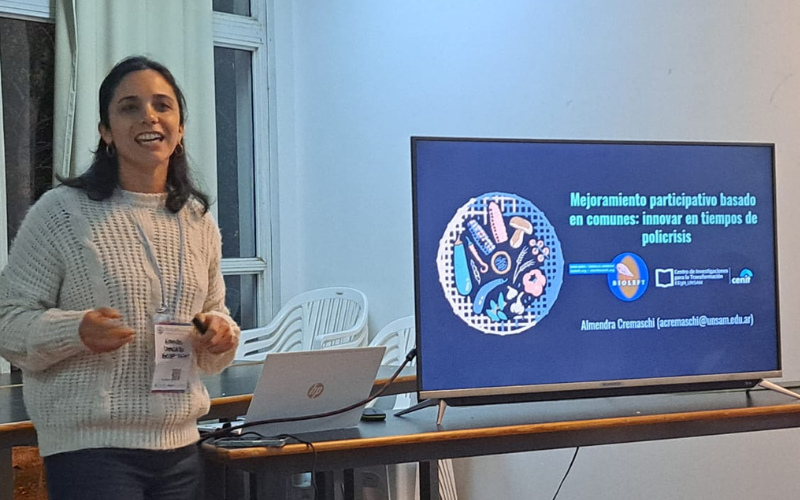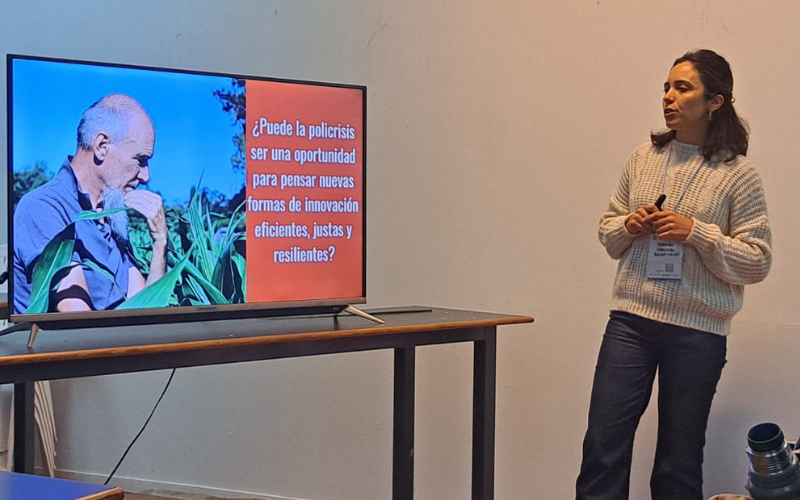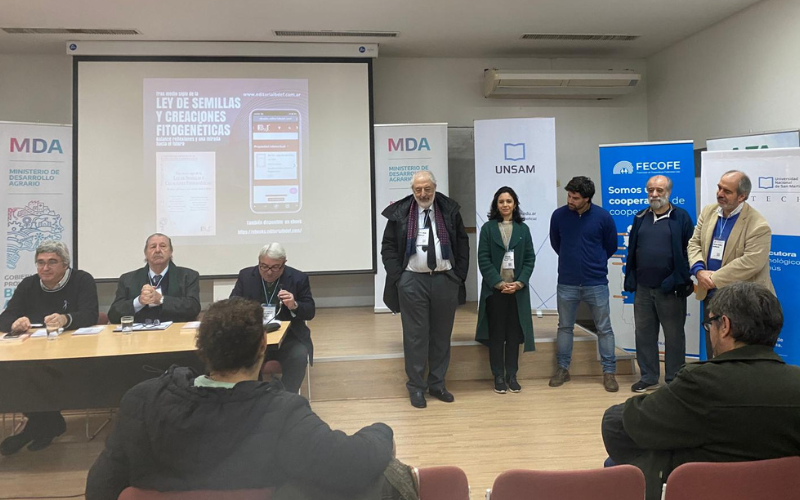
From May 22 to 23, Bioleft participated in the 10th National and International Congress on Agrobiotechnology, Intellectual Property, and Public Policies, held in Chascomús. This event has become a key space for debating the present and future of agricultural innovation in Argentina, bringing together scientific, political, and technological perspectives.


In the thematic panel “Research and Development in National Plant Biotechnology”, moderated by Dr. Silvina Mangano (INTECH), Almendra Cremaschi presented the paper “Commons-based participatory breeding: innovating in times of polycrisis.” The proposal combines participatory plant breeding, open science, and commons governance. In a context of corporate concentration, climate crisis, and institutional dismantling, Bioleft’s approach emerges as a concrete and replicable alternative to democratize access to genetic diversity and build fairer, more resilient, and sustainable agri-food systems.
During her presentation, Almendra shared co-production of knowledge experiences developed alongside farmers, scientists, extensionists, and technicians from the public and agroecological sectors. Concrete results in maize and tomato were highlighted, achieved through open digital tools and open-source seed licenses. Challenges and opportunities of the new regulatory framework were also discussed, including Resolution 49/2025 and the regulations on creole seeds.
Also participating in the panel were Gabriela Massa (IPADS Balcarce – INTA – CONICET), Gustavo Schrauff (FAUBA), Federico Ariel (APOLO Biotech), and Raúl Cattáneo (Ministry of Agrarian Development of the Province of Buenos Aires), who shared advances in gene editing, model species, and public plant breeding programs.


In addition, the collective book “Half a Century After the Seed and Phytosanitary Creations Law: Assessment, Reflections, and a Look Toward the Future,” edited by CEIDIE (UBA), was presented. It will be officially launched on June 19 at the Law School. Five of its co-authors were present at the congress: Almendra Cremaschi, Rafael Pérez Miranda, Cristian Amarilla, Gustavo Schrauf, and Andrés Moncayo von Hase.
The book offers a critical review of the current legislation, examining its historical impacts and opening the debate on alternative governance models for plant genetic resources.
At Bioleft, we celebrate and deeply appreciate these spaces of exchange between knowledge systems, institutions, and territories. We continue working collectively for an open, situated science that serves the necessary transitions.